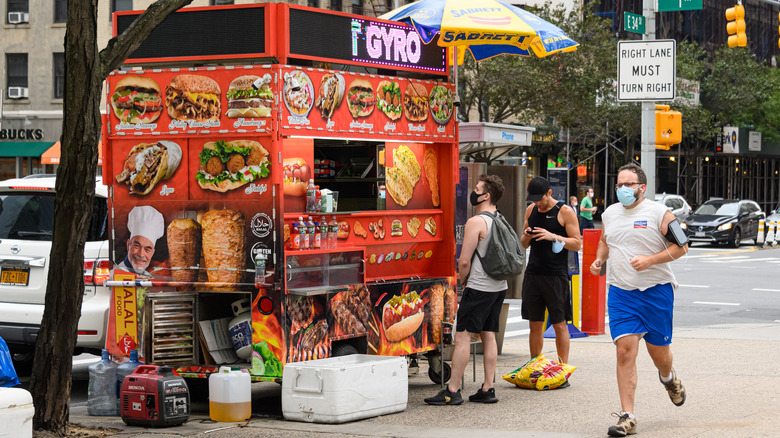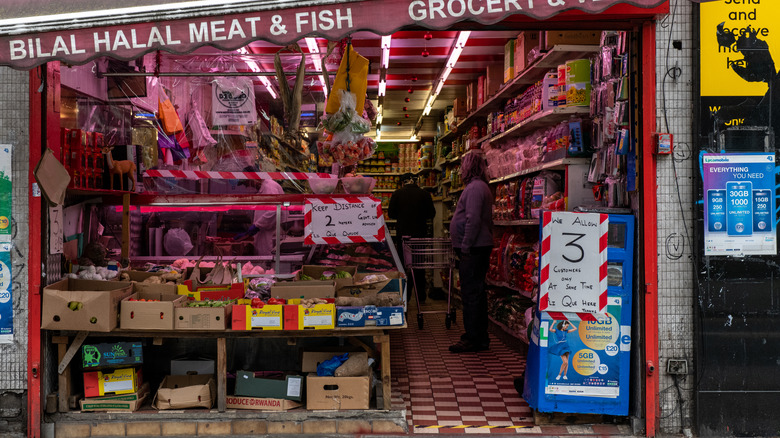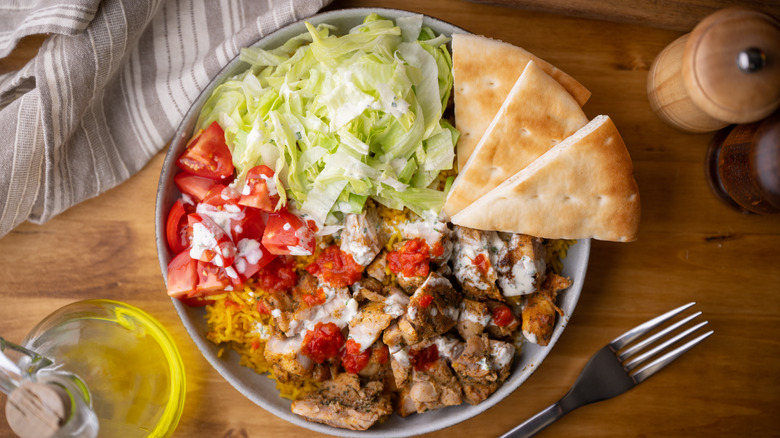The Best Tool To Navigate NYC's Diverse Halal Food Scene
If you're looking for something to eat in New York City, you can pretty much find anything your little heart desires, no matter how niche or specific. But for people with certain dietary restrictions, it can be a challenge to ascertain what options you have when eating out. This was the impetus behind @MuslimFoodies, an Instagram account launched in 2017 by three college students in NYC who wanted to make it easier for people to find and share halal restaurants in the area.
Over the years, the social media account has spawned into a blog and a TikTok account covering halal restaurants in New York City, New Jersey, and Long Island, as well as other locations like Toronto and the DMV.
"We found that a page like MuslimFoodies was very important as not only did it make it easy for Muslims to find halal restaurants and make it easier to eat halal, but it also shined a light on small businesses that were mostly owned by newcomer immigrants," Jiniya Azad of MuslimFoodies told Food Republic.
What is halal food?
Halal is a term generally used to describe things permissible under Islamic law, but it's best known as a way to describe food made with Muslim dietary restrictions in mind — similar to kosher food in Judaism.
Some foods, like pork, are always considered haram (the opposite of halal), while other animals can be haram or halal depending on how the animal is slaughtered. A very specific blood-letting process must be followed, accompanied by an Islamic recitation, as a way to respect the death of the animal.
In order to make sure that all restaurants covered by the MuslimFoodies blog and Instagram account are actually halal, the team reaches out to each restaurant on their list to request halal certifications and invoices for the halal meat the restaurant has purchased. New restaurants are posted constantly, and updates are made if a restaurant starts or stops serving halal meats.
Misconceptions about halal food
Azad pointed out that a common misconception about halal food is that it refers to a specific set of common Mediterranean dishes, like the halal cart staple, chicken and rice. "Halal options also include seafood and vegetarian/vegan restaurants, as long as the dishes do not contain any alcohol or any animal by-products like animal gelatin or pork enzymes," Azad clarifies.
Plenty of restaurants can be halal or have halal dishes as long as they source their meat from halal butchers. New Zealand, which exports almost exclusively halal meat, is a growing provider of halal restaurants in the U.S. Several high-end steakhouses in the New York area use halal beef, and several Asian restaurants, like New Jersey's Korean barbecue spot Prime No. 7, have even recently begun to introduce separate halal beef or lamb options to cater to the local Muslim populations.
Since the popularity of MuslimFoodies has grown, numerous other halal food bloggers and social media influencers have pooled their knowledge to create other similar groups across the country. MuslimFoodies itself plans to expand coverage to the American South and the West Coast, where shifting demographics have resulted in a surplus of halal restaurants.



